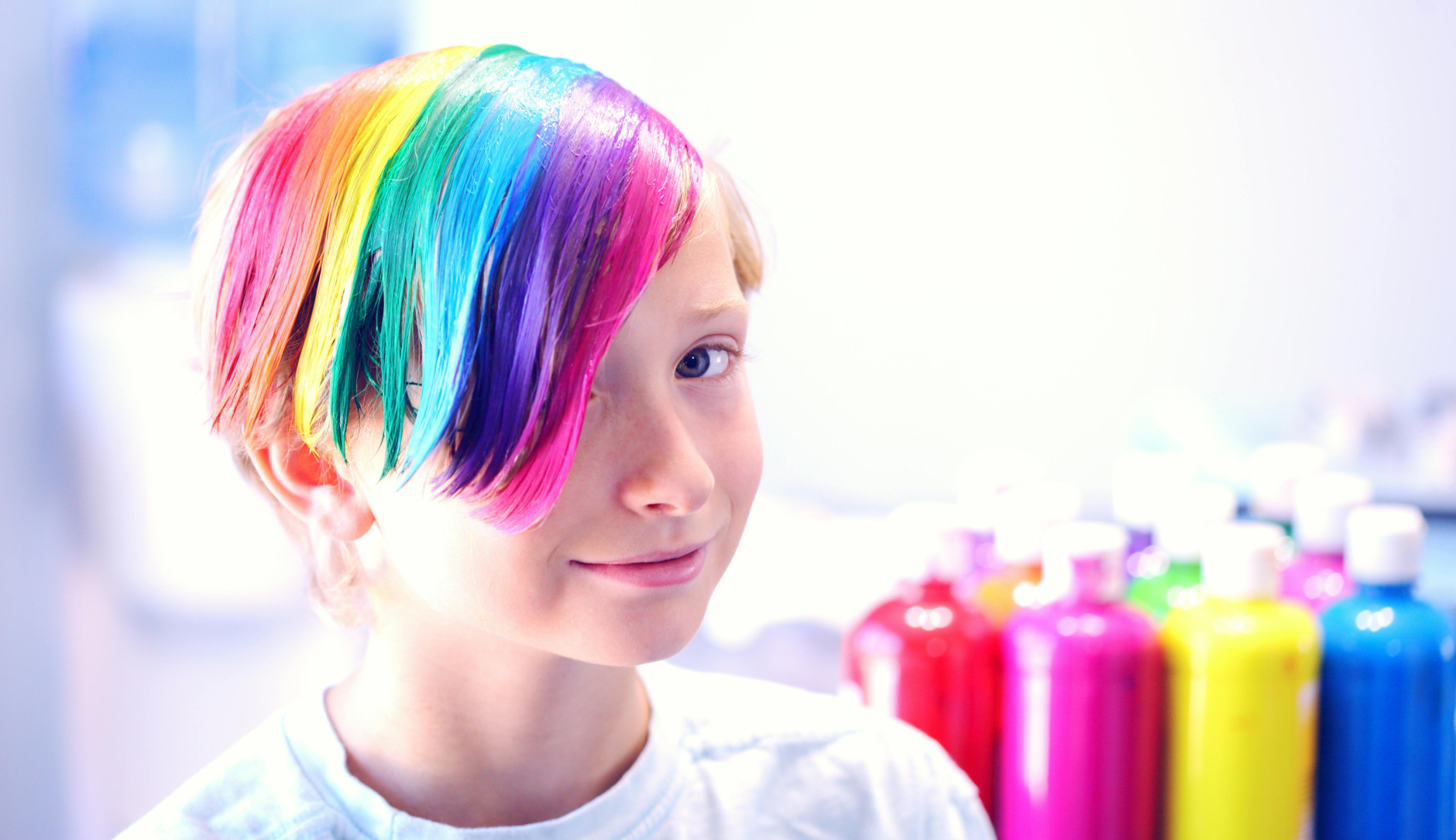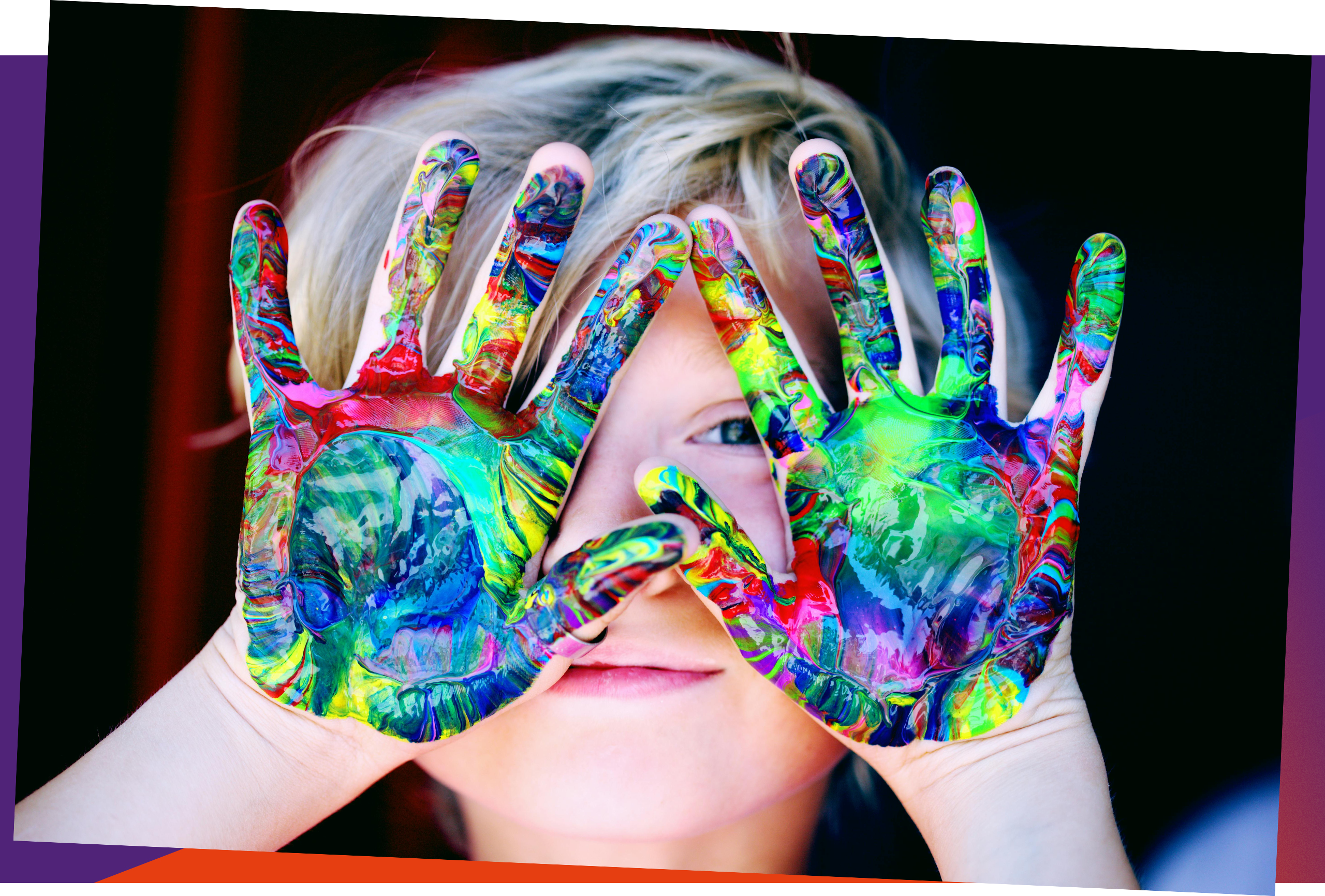Children have a right to information
In Luxembourg, a petition has now been signed by over 7,000 people, which is clearly directed against LGBTQIA+ people and wants to ban content about queerness from schools – Volt cannot tolerate this kind of discriminatory censorship.

Volt is fully committed to supporting human rights, especially those of minorities and the LGBTQIA+ community. The petition N° 3198 submitted to the Chamber is hate speech that is inhumane and completely characterised by ignorance of scientific facts. It is clearly directed against queer people – even if it claims that it is not. Because those who want to prevent children from being educated also want to prevent children from learning about the existence and rights of LGBTQIA+ people.
Volt is shocked by the many people who have signed this petition. The reasons given show a lack of knowledge of the curriculum, psychology and modern biology. We want to take this opportunity to debunk the petition's arguments once and for all and clarify the importance of education around sexuality in general and LGBTQIA+ issues in particular.
Debunking the allegations of the petition
Introducing these topics at an early age can disrupt children's psycho-educational development.
➡️ Wrong! There are no studies that suggest anything of the sort. It is also unclear to what extent it could interfere with children's development - after all, we are talking about facts here, about biological and psychological findings. Children get the information that there are things outside the prevailing heteronormativity. On the contrary, teaching children about different sexualities and identities from an early age makes for more harmonious coexistence. It goes without saying that this must be done in a child-friendly way – just as there are different methods in biology lessons, depending on the age, to teach children how reproduction works in humans.
Many are calling for schools to introduce LGBTQIA+ topics. The results of a survey of more than 700 pupils from 24 sixth and 26 ninth and tenth grades in 20 representatively selected Berlin schools of all standard school types show that teachers should make sexual and gender diversity more visible on the one hand and not themselves (unintentionally) behave in a discriminatory manner, but rather intervene against discrimination on the other: “The multi-level analyses show how helpful it is for teachers to address sexual diversity. The more different year groups and subjects in which lesbianism and gayness were discussed, the better the pupils knew about LGBT and the more positive their attitudes towards LGBT were.” (Ulrich Klocke, 2012)
A government [...] should exclude the teaching of LGBT issues from programmes for minors or offer options where families can decide whether or not their children participate.
➡️ Wrong! According to the UN Convention on the Rights of the Child, educational professionals have the legal mandate to support children in their individual personal development, to protect them from danger and to reduce disadvantages. Every child, regardless of gender identity, sexual orientation or other social aspects, has the right to free development of their personality, to a non-discriminatory learning environment and to participation. UNESCO also emphasises in its International Technical Guidance on Sexuality Education that LGBTQIA+ issues are part of comprehensive sexuality education. UNESCO repeatedly emphasises the importance of comprehensive sexuality education.
In secondary education in Luxembourg, LGBTQIA+ issues are covered in many different subjects: biology, language, life and social studies. The aim is to give students a neutral understanding of how the world works. In an interview with L'Essentiel, Raoul Scholtes, biology teacher and president of the teachers' union Féduse/Enseignement-CGFP, emphasises that it is unacceptable to make these subjects optional. He compares this to the question of whether parents should decide whether their children learn where Chile is just because they have a different opinion. (Marion Mellinger, 2024)
The most important task of public education is to ensure that schools focus on the acquisition of basic academic skills.
➡️ Wrong! Education has significantly more tasks, which are also recognised today. Education should develop the personality and enable a fulfilled life. Education should prepare well-trained specialists for the labour market and keep our economy competitive. Education should secure peace and democracy and pass on our cultural knowledge across the generations. In this respect, an educational institution is also purely subject to scientific and ethical consensus. It cannot take into account the private views, opinions, beliefs or religions of individuals if this runs the risk of going against the facts – this does not fulfil the educational mandate of the state. At least in most European countries, all girls, regardless of their religion, have to take swimming lessons, all children learn about different world religions in joint “Life and Society” lessons (regardless of their own religion), in biology they deal with human reproduction and the theory of evolution, in history they learn in a neutral way about the worst and most brutal human conflicts of the 20th century and ultimately have teaching staff of the most diverse nationalities, skin colours, sexualities, genders and religious denominations. Throwing a spanner in the works of any topic just because it doesn't suit you personally is not only ignorant, but also disrespectful towards your own child. Because, contrary to what others make out, the local school provides education, not indoctrination. A ban is tantamount to burning books – the facts are hushed up.
 Why sexual education around gender diversity is so important
Why sexual education around gender diversity is so important
Compulsory education makes it essential to take sexual and gender diversity into account in schools. In contrast to other contexts, children and young people cannot escape school and spend a large part of their time in school. A hostile or ignorant atmosphere therefore affects their well-being, their learning success and their educational opportunities. At the same time, compulsory education offers a unique opportunity to reach all people, at least at a certain age. If a society wants to reduce prejudice and discrimination and promote acceptance of diversity, it must start at school for pragmatic reasons alone. Teachers and other educational professionals therefore have a special responsibility towards young LGBTQIA+ people. “Empirical studies show that existing gender stereotypes hinder children in their development.” (Petra Focks, 2022)
What's more, this absurd argument about personal intolerance is being played out on the backs of queer young people. This is because they are plagued by mental problems even more than all other young people - due to intolerance and a lack of understanding from their peers. Heteronormativity forces queer young people to question themselves even more than young adults already do and leads to depression or suicide more often than cis/hetero young people. “LGBTQ+ young people are more likely than their peers to experience a mental health difficulty and may be less likely to draw on specialist support due to fears of discrimination.” (Town et al., 2022)
And the school is hugely important here: “Present data highlights that LGBTQ youth are at a heightened risk for numerous health and educational concerns. Such concerns can be attributed to a [...] lack of school curricula and policies that value LGBTQ diversity, and the existence of overall hostile and exclusionary school climates. The level of warmth and positivity in a school environment can positively impact LGBTQ students' experiences and their subsequent health and educational outcomes.” (Leung et al., 2022)
It is the responsibility of schools, which are such an important institution for young people, to ensure the mental health of all their students and to teach our values of tolerance, human rights and human dignity. “Teachers and other educational professionals have a special responsibility towards [LGBTQIA+ children] because children and young people cannot escape a potentially derogatory or ignorant atmosphere at school due to compulsory education. Furthermore, all children and young people can be reached at school to learn about the situation of LGBT* people and to accept other ways of living and loving.” (Ulrich Klocke, 2020)
If we deny schools the right to teach about diversity, we are also burying our values of tolerance, openness and human dignity. Volt will always defend these values and stand up for a free society, without censorship, political freedom and free from indoctrination. Every child, indeed every person, has a right to be informed. A right to education. A right to knowledge. And schools are the most important body for defending these rights.
Last but not least, we would like to draw your attention to the excellent and comprehensive publication ‘Let's Talk about Sex!’ from the Ministry of Health in 2020, which is an educational guide for teachers.
Sources:
Petra Focks (2022): Erziehung und Bildung jenseits von Geschlechterstereotypen. W. Kohlhammer Verlag, S. 76.
Ulrich Klocke (2012): Akzeptanz sexueller Vielfalt an Berliner Schulen
Ulrich Klocke (2020): Sexuelle und geschlechtliche Vielfalt in der Schule
Leung et al. (2022): Social support in schools and related outcomes for LGBTQ youth: a scoping review
Town et al. (2022): A qualitative investigation of LGBTQ+ young people’s experiences and perceptions of self-managing their mental health
Marion Mellinger (2024): Petitionäre wollen LGBTQ-Themen aus Schulen verbannen
https://www.regenbogenportal.de/infoartikel/lsbtiq-in-schule-und-jugendarbeit
UNESCO et al. (2018): International technical guidance on sexuality education: an evidence-informed approach
https://www.unesco.org/fr/articles/pourquoi-leducation-complete-la-sexualite-est-importante
Direction de la Santé (2020): Let’s talk about Sex!